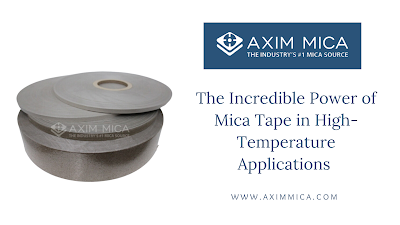6 Amazing Benefits of Mica Glass Tape Insulation

Mica glass tape insulation is an incredible material for high-temperature applications across numerous industries. Made from mica splits bonded to fiberglass fabric with adhesive binders, this insulation tape can withstand continuous use temperatures over 1000°F. If you need insulation that can handle extreme heat and resist fire, abuse, and corrosion, mica glass tape is an optimal solution. Keep reading to learn the six key benefits of mica glass tape insulation. Withstands Very High Temperatures The primary advantage of mica tape insulation is its ability to withstand extremely high temperatures. The mica content in the tape can resist continuous heat up to 1100°F to 1200°F. The fiberglass component increases the tensile strength and tear resistance. Mica is a naturally occurring silicate mineral with excellent heat resistance properties due to its unique layered structure. Combining mica with fiberglass in an insulation tape creates a barrier that can protect underlying components
